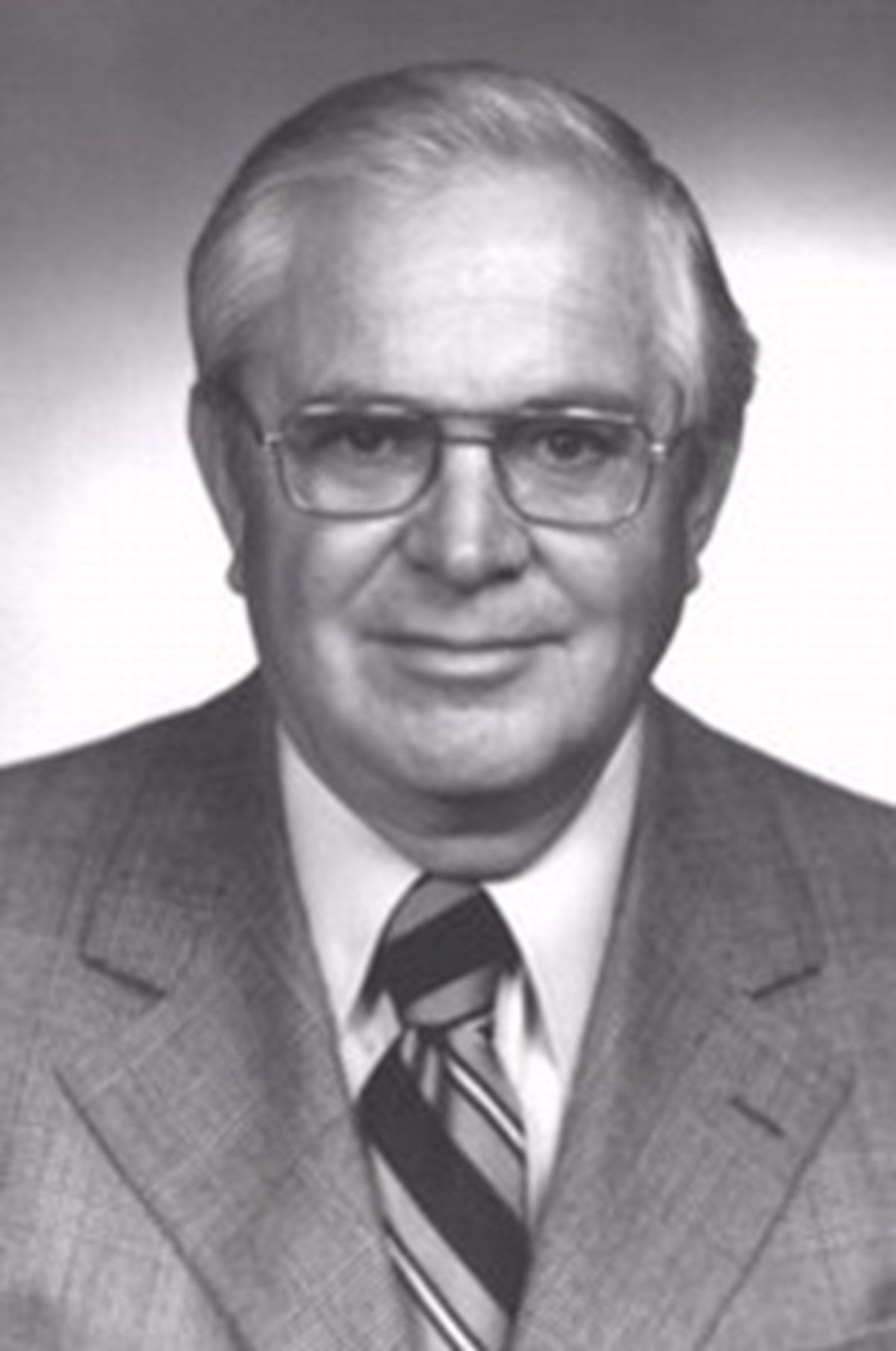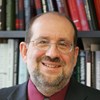This year marks the 100th anniversary of Ben Rogge's birth on June 18, 1920 and the 40th anniversary of his death on November 17, 1980. He mattered in my life and he mattered in the life of the Foundation for Economic Education (FEE).
Today we can still learn from what he said and did.
Rogge was a long-time professor of economics and dean at Wabash College. He co-authored an economics principles textbook that has never been surpassed in its presentation of Joseph Schumpeter's account of the economics of innovation. He helped to organize Milton Friedman's lectures at Wabash that eventually became Friedman's best popular book: Capitalism and Freedom.
Rogge and Leonard Read, the founder of FEE, supported big-tent libertarianism. They nurtured and encouraged a variety of scholars, of divergent views, who on balance supported freedom. Rogge was a pluralist in method. He was probably more a neo-Austrian than a Chicagoan, but most admired the fellow pluralist Joseph Schumpeter. On a personal level, he liked Milton Friedman better than Murray Rothbard, not because he agreed more with Friedman, but because he saw in Friedman a consistent civility that he did not see in Rothbard.
He helped his friend Pierre Goodrich set up Liberty Fund and co-wrote an essay with Goodrich calling for the end of academic tenure. Rogge believed that Liberty Fund colloquia, and liberal arts colleges like Wabash, could enable civil discourse in a marketplace of ideas where truth and wisdom would eventually emerge.
In Rogge’s time, and even more today, the academy is mainly ruled by those who enforce adherence to politically correct dogma, rather than by those who encourage lively but civil debate in a free marketplace of ideas. When I was rejected by major PhD philosophy departments because I mentioned Ayn Rand in my application essays, Rogge expressed his support by telling me how he had applied to be the president at a major university, but was rejected after he told them that he would refuse to accept federal funding.
When I was an undergraduate at Wabash, a few of us worked to revitalize The Wabash Journal of Economic, Social, and Political Opinion. I was proud that Rogge liked our first issue enough to show it to Pierre Goodrich, and even prouder when Rogge told me that Goodrich was impressed.
A socialist exchange student from Greece was not so impressed. He decided he would setup a socialist journal to counter our views. But he needed to find a faculty sponsor, and incredible though it now seems, no faculty member at Wabash was willing to sign up.
He finally found a willing faculty member: Ben Rogge. I was stunned and appalled. How could my Rogge, a man who had sacrificed his own career advancement in order to be consistent with his libertarian principles, how could that man sponsor a socialist journal? Then I had one of those rare soul-tingling epiphanies—when Rogge praised free speech in a marketplace of ideas, he really meant it.
Rogge said much that is still worth pondering. But what he said was only part of his appeal. As a Wabash undergraduate, I was able to attend a couple of FEE seminars where I heard lectures by Leonard Read on how humans flourish in a free society, by Edmund Opitz on how capitalism can be consistent with Christianity, and by Ben Rogge on how laissez-faire capitalism allows innovations that most benefit the least well off.
I enjoyed Read and Opitz, but Rogge was the star. He spoke conversationally, exuding good-will, humility, humor, and wisdom. You can see what I mean if you watch the first few minutes of a grainy Vimeo video of a talk on "Competition and Monopoly" that Rogge gave at FEE. (About two minutes in, listen for the good-natured repartee between Rogge and Read.)
Rogge was only 60 when he died. Wabash held a sparsely attended memorial service for him in the large Wabash chapel. Before it started, I saw Leonard Read who had flown in from New York with Edmund Opitz. Read was normally a fireball of energy and optimism, but this time he looked beaten and distraught. Read and Rogge were friends. But what I read decades later suggests that Read's distress may have been about more than friendship. Read had counted on the much-younger Rogge to be his eventual heir as President of FEE (Doherty, Radicals for Capitalism, p. 163).
Read was not just distraught, he was indignant—he asked me why so few were present to honor a man who had devoted so much to so many? I had no answer and do not remember what I mumbled in response. Rogge would have had a better response. He would have smiled his sad, knowing smile, and reminded Read of one of their favorite essays: Albert Jay Nock's "Isaiah's Job."
Nock paraphrased the Bible; I paraphrase Nock. God had asked Isaiah to warn the people of their peril and urge them to mend their ways. Isaiah tried hard, but eventually complained to God that his efforts were futile since no one was listening. God told Isaiah to persevere, because there was a remnant out there of those who hear and who care. He told Isaiah that he would know neither their number nor their identity, but he could rest assured that they existed and that they were the ones who mattered. Nock goes on to say that an idea may lodge in the mind of a member of the remnant where it then percolates for many years until it emerges and changes the world.
Like the 1930s, when Nock wrote his essay, these are bleak times. Rogge thought a lot about what to do in bleak times. Like Schumpeter, Rogge thought the ship of a free society was going to sink. But even so, he still thought we should run for the pumps. Rogge ran for the pumps and the ship did not sink on his watch.
For the first 20 years of my career, whenever I taught a semester course on principles of economics, I would talk for only 30 minutes about Rogge's ideas on how innovation and leapfrog competition provide the path to human flourishing. Although I never lost my enthusiasm for those ideas, my teaching and research was mainly on other topics. But finally, in the last 20 years or so, I resolved to do better at teaching and researching the ideas that first lodged in my mind as a student of Ben Rogge.
In the 40 years since he left us, I have found many others who knew Ben Rogge and who told me how much they admired and learned from him. The measure of Ben Rogge is not in the number who attended his memorial service. The measure of Ben Rogge is in the ideas about the economics of innovation that he kept alive, extended, and passed on. And it is in the example he set of how a person’s deeds can align with his words in the defense of free thought and free enterprise.
Brief Reader’s Guide to Benjamin A. Rogge:
- Rogge’s essay with Goodrich on education, can be found in the first chapter of:
- Rogge, Benjamin A., and Pierre F. Goodrich. "Education in a Free Society." In Education in a Free Society, edited by Anne H. Burleigh. Indianapolis: Liberty Fund, Inc., 1973, pp. 29-55.
- Rogge’s voice, and his take on what matters in Adam Smith, can be found in the movie he narrated:
- Rogge, Benjamin A., narrator. "Adam Smith and the Wealth of Nations." 28 minutes. Indianapolis: Liberty Fund, Inc., 1975 (video tape); 2000 (dvd).
- Rogge’s account of Schumpeter on innovation and competition, can be found in the first chapter of:
- Rogge, Benjamin A. Can Capitalism Survive? Indianapolis: Liberty Fund, Inc., 1979.

